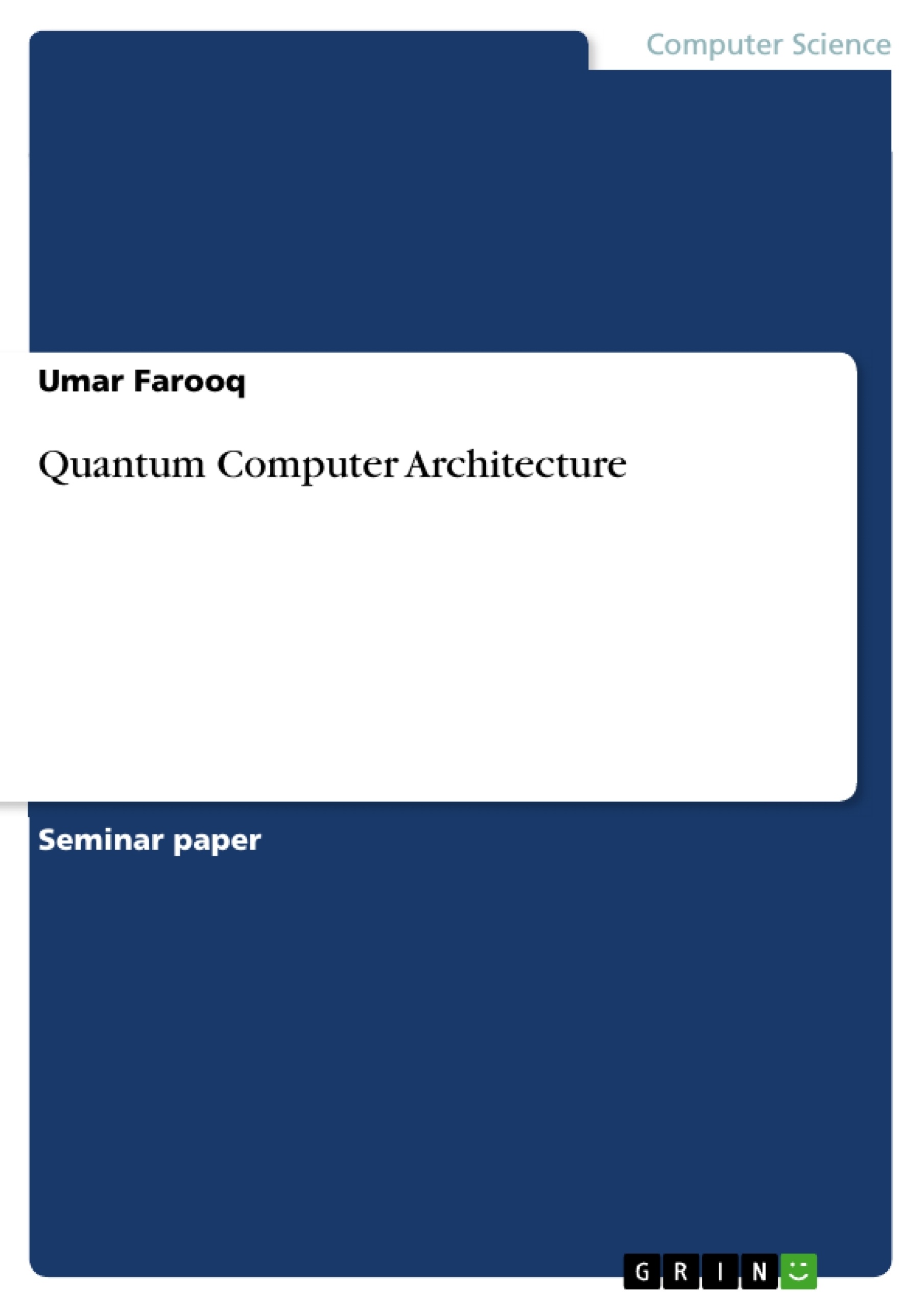Quantum Computers are evolving for more than a decade and they are closer to reality. The field of quantum computing is too big to be described in one paper, but the real motivation for the quantum computers is its architecture. Firstly it is believed that classical computers can’t use the quantum algorithms and operations secondly the programs running on the quantum computers can’t run on traditional computer which is due to architecture and system. The quantum computer architecture is the key to build a quantum computer. The quantum computers are more complex than traditional computers. This research paper will discuss the quantum computer architecture.
Table of Contents
- I. INTRODUCTION
- II. RELATED WORK
- III. HISTORY OF QUANTUM COMPUTING
- IV. THE ARCHITECTURE
- A. Quantum Computing Design Tools related Architecture
- B. Reliable Quantum Computer Architecture
- C. Distributed Quantum Computation Architecture
- V. HIGH PERFORMANCE QUANTUM COMPUTING
- VI. PRACTICAL QUANTUM COMPUTERS AND RELATED RESEARCH
Objectives and Key Themes
This research paper aims to explore the architecture of quantum computers, delving into their unique structure and functionalities. It emphasizes the significant role of quantum computers in addressing limitations of traditional computing and their potential to revolutionize various fields.
- Quantum Computer Architecture: The paper focuses on the fundamental components and design principles of quantum computers, contrasting them with traditional computing systems.
- Qubits and Quantum Operations: It examines the concept of qubits, their capabilities, and how they enable quantum algorithms and operations that are impossible for classical computers.
- High Performance Quantum Computing: The paper explores the potential of quantum computers to achieve significantly higher performance than classical computers, particularly in solving complex problems.
- Practical Implementations and Applications: It discusses ongoing research and development of practical quantum computers, highlighting key companies and universities involved in this field.
- Impact on Various Fields: The paper explores the potential impact of quantum computers on various fields, including education, media, nuclear technology, engineering, research, aerospace, medicine, technology, space travel, armed forces, and sports.
Chapter Summaries
The introduction sets the stage by highlighting the limitations of traditional computers and the need for new technologies, particularly quantum computers. It introduces the basic structure of quantum computers and their key components, such as qubits, which offer greater storage capacity and computational power compared to bits.
Chapter II explores related work in the field of quantum computing, citing research on various aspects, including the use of 3-Dimensional cluster lattices for quantum computer processing, the relationship between physics and computational models, and the development of explicit microscopic models for quantum computer register construction.
Chapter III provides a historical overview of quantum computing, tracing its evolution from theoretical concepts to practical implementations. It highlights key milestones, such as the development of early quantum computers, the implementation of Shor's algorithm, and the creation of the first Qubyte using ion traps.
Chapter IV delves into the architecture of quantum computers, focusing on three key areas: design tools related architecture, reliable quantum computer architecture, and distributed quantum computation architecture. It discusses the importance of fault tolerance and the use of distributed architectures to optimize resource utilization.
Chapter V explores the potential of high-performance quantum computing to solve complex problems and achieve computational speeds exceeding those of traditional computers. It examines various research initiatives, including the development of parallel solutions for memory-bound issues and the use of hybrid communication methods.
Keywords
The primary keywords and focus topics of this research paper include quantum computers, qubits, quantum algorithms, quantum architecture, high-performance computing, fault tolerance, distributed computing, practical implementations, and the impact of quantum computers on various fields.
- Quote paper
- Umar Farooq (Author), 2014, Quantum Computer Architecture, Munich, GRIN Verlag, https://www.grin.com/document/282727




